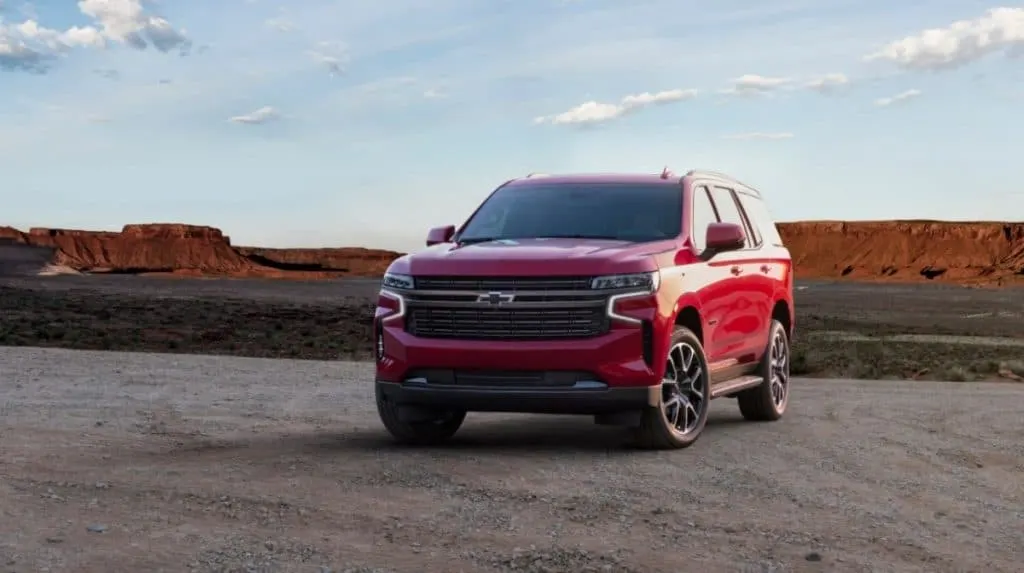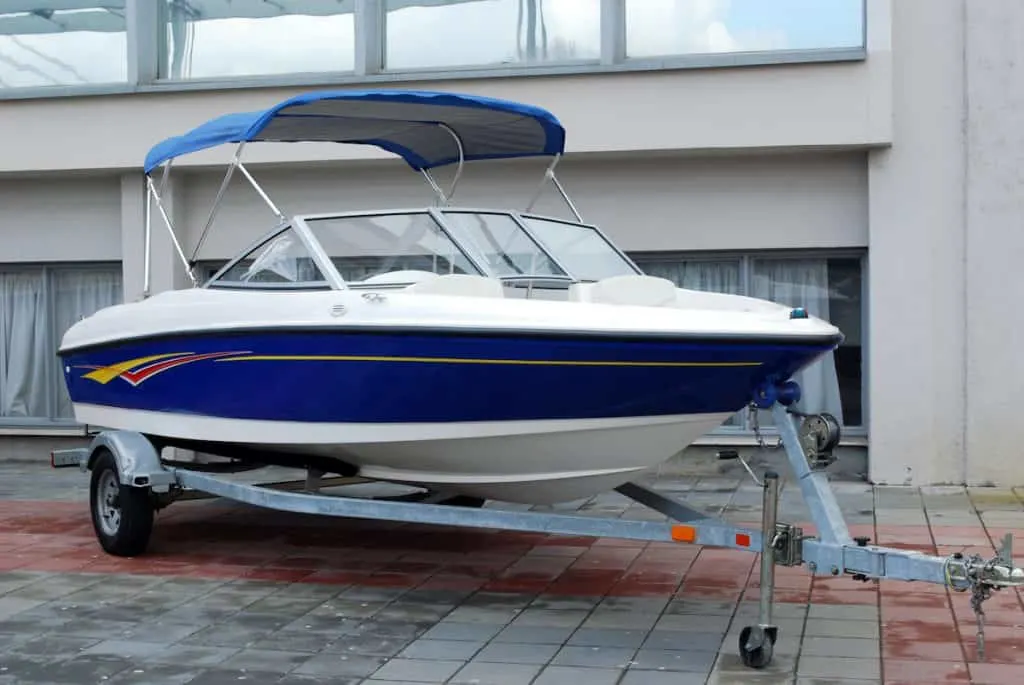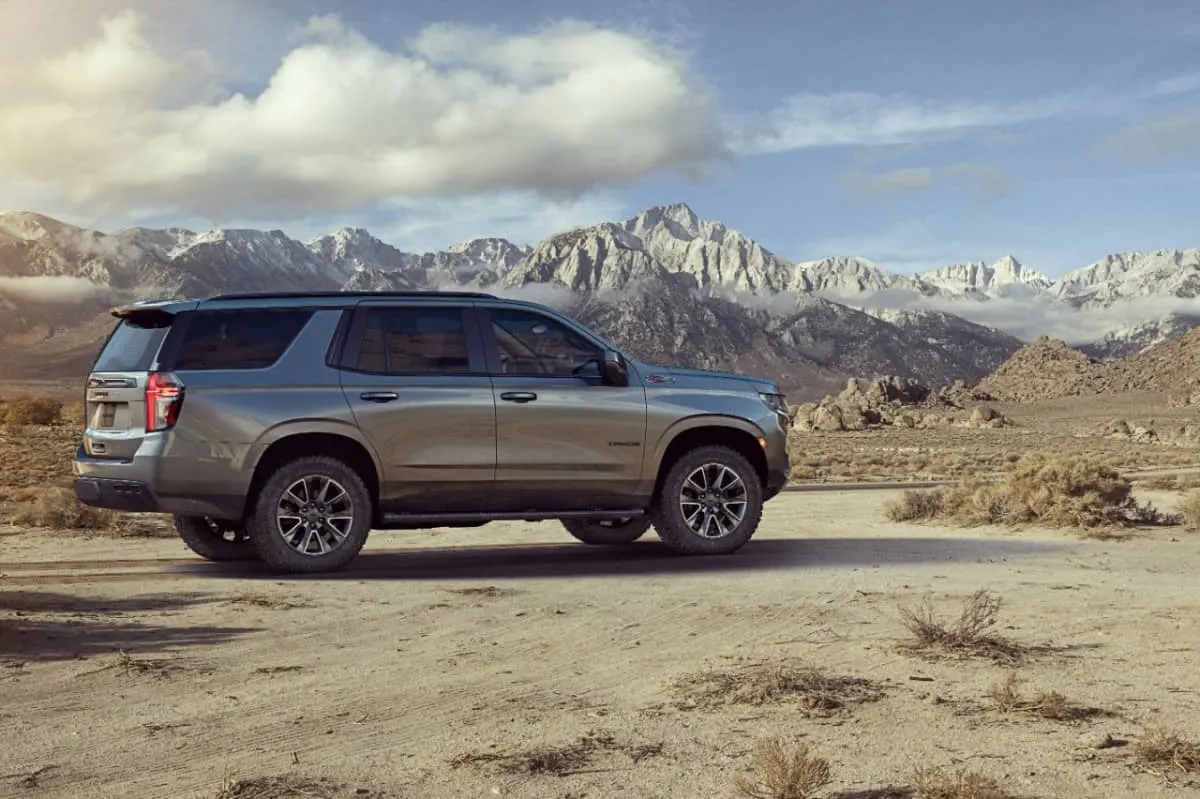Having a Chevy Tahoe as a vehicle is a great option to use when you are taking a trip to the lake, or your family is going camping for the weekend. But can a Chevy Tahoe handle towing a boat with you to the lake?
The newer models of the Chevy Tahoe vehicle have a towing capacity of up to 8,100 pounds but most standard models can tow up to 6,600. This high towing capacity is high enough to be able to tow smaller boats, snowmobiles, and other watercraft.
So, now that you know that your Chevy Tahoe can tow your boat, find out how to do it, and what types of boats it can handle with any problems.
Chevy Tahoe Models

Depending on what year your Chevy Tahoe was made, your towing capacity will be different. However, many of these models are made for towing larger items and can handle towing a small-medium-sized boat.
No matter what Chevy Tahoe you have, you will always get the standard towing capacity of 6,600 pounds. This allows you to tow small boats with your Tahoe without any problems.
If you have a newer model, like the 2018 Tahoe, then you will have more weight capacity with the ability to tow up to 8,100 pounds at one time. This will let you tow larger boats that will fit the whole family.
It also depends on whether your Tahoe comes with a four-wheel drive. If so, even if you have an older model, you might still have a high towing capacity than you might think.
If you already have a Chevy Tahoe model and are not sure what the total towing capacity of your model is, you can take a look at your owner’s manual and it will tell you how much your vehicle can handle.
The Size of Your Boat

The towing capacity of your vehicle doesn’t make a difference if the size of the boat you already have is too much for your vehicle. So, you need to check the weight of the boat before you decide to tow it with your Chevy Tahoe (or any vehicle for that matter).
You also don’t want to go over the total capacity of your vehicle accidentally. If you add items in the boat for storage that will add to the weight of what you’re towing, then this could put you over the towing capacity.
So, make sure that you the boat you are going to tow has a bit of wiggle room so you can still add some weight onto the boat. You also need to think about the towing equipment, which can also affect the total weight of what you’re towing.
If the hitch and attachments weigh 100 pounds and the towing capacity is 6,600, then you need only have a capacity to tow a boat that weighs up to 6,500 pounds.
So, do the math before you get your boat or before hooking up to your Tahoe so that you don’t put too much weight on your vehicle and cause damage.
Fuel in the Boat
Another thing that you have to consider is that your boat takes fuel to run. Just like a car, it will weigh more when it has a full fuel tank, and less when it is empty or low.
If you are weighing your boat without fuel, you will want to have plenty of extra weight available before you hit the towing capacity to ensure that you take the weight of the fuel into account.
This will allow you to fill up the boat before you go, or on the way to your destination, without worrying about going damaging your vehicle by towing over the weight capacity.
Balancing Your Load
When you take a trip, you will take more things with you than just your boat, and you need to account for that. The items that you keep inside the SUV and those that are placed in the boat storage need to be balanced.
If your load is unbalanced, then your driving could be affected. A load that is too heavy on one side could cause your vehicle to lean into the area when you are driving, which will force you to pull to the opposite side to stay within the lines.
If the load that is placed in your boat is unbalanced, it could cause the boat to start swinging back and forth while on the road. This is dangerous because it could cause the boat to hit another vehicle, or possibly detach from your Tahoe completely.
So, make sure that you double-check your load before you hit the road to ensure that everything is well-balanced and will not affect your driving abilities while on your trip.
What Happens if You Tow Too Much Weight?
You might have already known that towing too much weight with your vehicle could damage, but do you know how?
Well, there are a few main ways that this could hurt your vehicle.
#1 Erratic Steering
When you are pulling a large load behind your vehicle, you are putting too much stress on it. This can cause your steering to be negatively affected.
The extra weight could cause your steering wheel to pull to one side or the other, this could cause you to sway from side to side. If you go too far, you could pass over the lines in the road and possibly hit another vehicle.
You never want to deal with an accident, so you need to ensure that the weight is reasonable for the Tahoe you’re driving.
#2 Accelerating
Having too much weight on your vehicle could also cause issues when you try to accelerate. This is because your engine will have to work much harder to speed up all the weight that it is towing.
You are risking your engine blowing up from towing over the weight capacity because it could stop altogether from overworking itself.
This could leave you stranded somewhere if you can’t fix the issue right away, and you don’t want to end up having to deal with this while on a weekend trip or family vacation.
#3 Braking
One of the most dangerous things that can happen when you are towing too much weight with your Tahoe is the brakes going out. With the added weight, the brakes could be overloaded and not work properly when you need them to.
This could cause your brakes to fail when you need them and cause a collision. When you are on a long trip that consists of mostly freeway driving, this could be very dangerous because you are driving at high speeds.
This could cause the accident to be worse for you and the other car and passengers. So, make sure that your brakes are not getting overloaded and could possibly fail on you.
Towing With Your Tahoe
If you have checked the weight and balanced your load, then you are ready to start towing with your Chevy Tahoe. To do this, follow the instructions below.
On the back of your vehicle, you will need to install a hitch if you don’t already have one. This is what the towing equipment on your boat will hook onto when you are ready to drive.
The ball hitch will fit on the back of the car, and the boat will have a piece that goes over the ball and locks down. If the lock fits correctly, it will not move.
If it is too big, then it will slide off the ball hitch after being locked down. Make sure that you have the right fit before taking off or else there could be a disconnection.
After the ball hitch and the boat are connected, you will want to connect tail lights from your Tahoe to the boat. This will allow the boat’s lights to be seen in case your Tahoe’s taillights aren’t visible.
This is a simple process that will only take a few steps that are outlined in the instructions of the lights themselves.
After this is done, you will want to have someone check that the lights work by going behind the boat while you use your blinkers and brake lights. Once you know that the lights work, you are ready to hit the road.
Final Words
If you have a Chevy Tahoe and want to try to take it out for a trip to the lake, then you want to know that you have the towing capacity to get there and back safely.
If you check your owner’s manual to see what the towing capacity is, you will find that you can tow more than you thought.
However, you still want to take precautions to keep you and your family safe by making sure that you are well under the total weight allowed, you have accounted for the hitch, tail lights, and fuel and also that you have balanced the weight.
If you do all of these things, you will have a safe trip with your friends or family to the lake without any issues. Just remember to stay safe and drive appropriately.
Recommended Reading
Before you go, make sure to also check out these other awesome resources!
